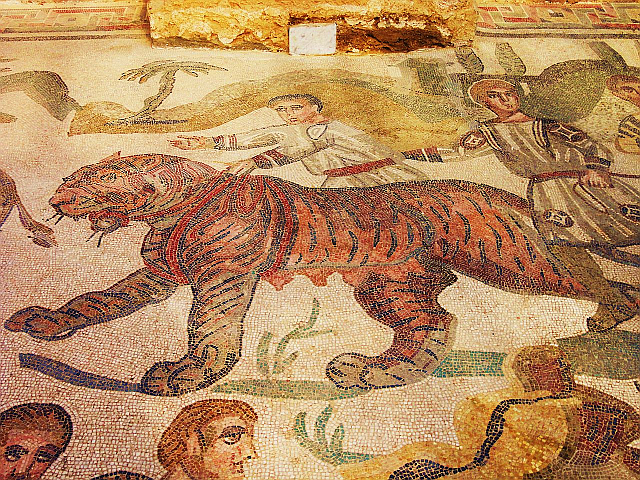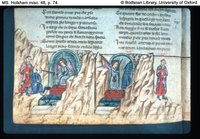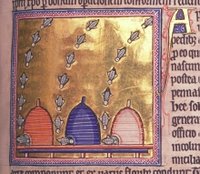The canto ends with another character, the illuminator, Oderisi,
l'honor d'Agobbio e l'onor di quell'arte
ch'alluminar chiamata e in Parisi
ch'alluminar chiamata e in Parisi
predicting that Dante will soon know the pain of exile and want. The hint of what is to come is elaborated on later, by Cacciaguida, Dante's noble ancestor whom he encounters in Paradiso. There in simple, stark terms, Dante gives us his experience of exile:
Tu lascerai ogni cosa diletta
piu caramente; e questo e quell strale
che l'arco de lo esilio pria saetta.
Tu proverai si come sa di sale
lo pane altrui, e come e duro calle
lo scendere e 'l salir per l'altrui scale.
Paradiso 17.55-60.





